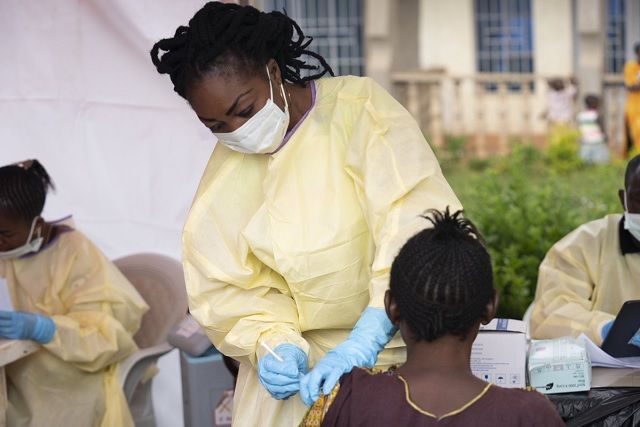On July 29, 2024, the East African Community (EAC) Secretariat urged EAC Partner States to educate their citizens on preventing and managing Mpox (Monkeypox) following outbreaks in Burundi and the Democratic Republic of Congo (DRC). reported by the World Health Organization (WHO).
Burundi has reported three cases in Bujumbura and Isare, which were verified by national laboratories and the WHO. The Burundian Health Ministry confirmed that measures are being undertaken to manage the disease and that the patients are receiving treatment and showing improvement.
The DRC, which has reported over 21,000 cases and 1,000 deaths since 2022, faces a significant outbreak, particularly affecting children under five (39%), and nearly two-thirds (62%) of the deaths are also among children. According to the WHO, in 2023, there were 14,626 cases and 654 deaths, and by the end of May 2024, 7,851 cases and 384 deaths had been reported. Additionally, health experts have identified a new strain of the virus in one part of the country.
Geographically, Burundi borders the DRC, Rwanda, and Tanzania, while the DRC borders five EAC Partner States: Tanzania, Burundi, Rwanda, Uganda, and South Sudan. This therefore requires member states to employ risk communication and community engagement approaches as a step towards preventative measures.
Emphasising this point, the EAC Deputy Secretary General in charge of Infrastructure, Productive, Social, and Political, Hon. Andrea Aguer Ariik Malueth, stressed, “EAC Partner States must provide necessary information about the disease and take preventive measures”. The DSG added that factual risk communication, community engagement, and enhanced surveillance were crucial steps to managing the disease in the countries and in the region at large.
Symptoms of Mpox include a skin rash or lesions, fever, an intense headache, muscle aches, back pain, general body weakness, and swollen lymph nodes. To reduce the risk of infection, the public should avoid contact with infected individuals and animals (rodents and non-human primates), use personal protective equipment when caring for those infected, practice good hygiene, and cook meat thoroughly before consumption. Those who suspect they have Mpox should isolate themselves and seek medical advice. While a vaccine against Mpox is available, the WHO recommends vaccination primarily for those at high risk of exposure.
The EAC will convene a meeting of health experts to deliberate on the situation. Moreover, in anticipation of pandemics and epidemics in the region, the EAC, with support from GIZ and the Africa CDC, has established a pool of rapidly deployable experts ready to be deployed in areas of disease outbreaks in the region.
Find more information on the EAC website here.
Background
GIZ, in close collaboration with the EAC Secretariat and other partners, co-creates regional approaches to strengthen the prevention and control of outbreaks of infectious diseases with epidemic potential. The regional approach aims to create structures and capacities relevant for all EAC Partner States to facilitate a uniform, effective, responsible, and balanced approach to pandemic preparedness at regional and national government levels. It supports mainstreaming of the One Health approach in the EAC region and institutionalises risk and crisis communication with the objective of empowering citizens to take informed decisions related to existing or emerging risks.
Among other successful initiatives, GIZ has supported the EAC in strengthening ten border areas with the DRC and other EAC Partner States by providing handwashing facilities and health promotion activities to encourage protective health and hygiene (WASH) behaviors. This aims to prevent the spread of zoonotic and water-borne infectious diseases. The promotion initiative has reached 700,000 individuals. Further, the WASH project, conducted in seven EAC Partner States has reached about five million individuals.
Find more information on the EAC-GIZ Pandemic Preparedness and One Health programme here.
